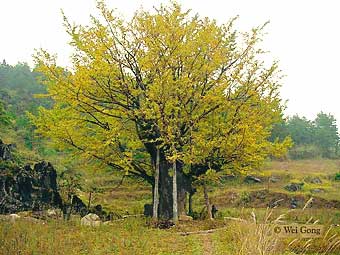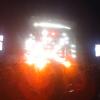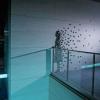
Ginkgo Biloba - The Neutral Nootropic
#31
Posted 19 November 2011 - 08:40 PM
#32
Posted 21 November 2011 - 07:09 PM
#33
Posted 24 November 2011 - 02:08 AM
#34
Posted 24 November 2011 - 10:31 PM
#35
Posted 30 November 2011 - 09:47 PM
I don't have problems with dreams anymore. Spiritual cleanse took care of that. I generally don't have a problem going to sleep, especially with the Gotu Kola in my daily regime.
Sorry if OT but can you please tell me what you mean with Spiritual cleanse?
#36
Posted 30 November 2011 - 09:53 PM
#37
Posted 01 December 2011 - 01:09 AM
I don't have problems with dreams anymore. Spiritual cleanse took care of that. I generally don't have a problem going to sleep, especially with the Gotu Kola in my daily regime.
Sorry if OT but can you please tell me what you mean with Spiritual cleanse?
Spider is right (in a sense). A spiritual cleanse ultimately results in a belief of the cleansing, which gives power or a doorway to the remedy. Faith is spiritual strength, and however you gather that, is up to you. I suggest rooting the faith in something stronger than yourself, so that you have something for your faith yo hold on to.
What I did was explained the issue, found the cause, and then prayed with my mother, pastor, anyone to come against the spirit and verbally banish it from my room in Jesus name (I am a Christian). Since then, I have yet to see any dark shrouds. The voices have stopped. The demonic faces, dreams, and sleep paralysis have become so rare... literally ONLY when sleeping in a new room and rarely, even at that.
Spiritism can be quite a doorway to some effedupness. Shouldn't have thought my superconscious was cool with that...
Back on topic...
Basically, sleeping is good. Having peace of mind is good. Without those two things, nootropics could hardly work. Do what you have to do, whether that be Jesus-freaking the room or getting moral support or taking a few herbs. It's all good if it works, so don't knock it until you try it.
#38
Posted 06 December 2011 - 11:58 PM
Interesting potentiates LTP while antagonizing the glycine site.Br J Pharmacol. 2006 May;148(2):147-53.
The in vivo synaptic plasticity mechanism of EGb 761-induced enhancement of spatial learning and memory in aged rats.
Wang Y, Wang L, Wu J, Cai J.
Source
Section of Brain and Behavior, Kunming Institute of Zoology, Chinese Academy of Sciences, Kunming 650223, Yunnan, PR China.
Abstract
It has not been uniform to date that the Ginkgo biloba extracts enhance cognitive function in aged animals, and the mechanisms of action remain difficult to elucidate. In this study, the Morris water maze task and electrophysiological methods were used to study the effects of repeated daily administration of EGb 761, a standardized extract from G. biloba leaves, on hippocampal-dependent spatial learning and memory and synaptic plasticity of aged rats. The adult subjects perform the Morris water maze task better than aged rats, as a cellular mechanism, the hippocampal long-term potentiation (LTP) elicited from adult animals is robust (139.29+/-2.7%). In addition, the spatial learning and memory of aged rats that had been fed on an EGb 761-supplemented diet (60 mg kg(-1)) for 30 days were significantly better than those of control aged rats. The magnitude of LTP (116.63+/-3.6%) recorded in vivo from the hippocampus CA1 area of aged rats was significantly enhanced by EGb 761 (60 mg kg(-1)). In conclusion, the spatial learning and memory of aged rats is worse than that of young subjects, and EGb 761, acting as a 'cognitive enhancer', has benefit on synaptic plasticity and cognition in aged rats. The present data further confirmed that enhancement of synaptic plasticity of the hippocampus might ameliorate the deficit in spatial learning and memory in aged rats.
#39
Posted 07 December 2011 - 09:22 PM
Interesting potentiates LTP while antagonizing the glycine site.
http://www.ncbi.nlm....pubmed/14568560
Inhibition of hippocampal LTP by ginkgolide B is mediated by its blocking action on PAF rather than glycine receptors.
Platelet-activating factor (PAF), a biologically active lipid (1-O-alkyl-2-acetyl-sn-glycero-3-phosphoholine), is identified in different regions of brain, including hippocampus. Specific PAF-activated receptors (PAFRs) are expressed in corresponding brain areas. PAF has been proposed to be a retrograde messenger of long-term potentiation (LTP): the antagonist of PAFRs, ginkgolide B (or BN52021) prevents induction of LTP. Recently it has been found that ginkgolide B is also an efficient blocker of the glycine receptor (GlyR) operated chloride channels (IC(50)=270+/-10 nM in hippocampal pyramidal neurons). The question is as follows: is the alteration of LTP by BN52021 due to the PAF antagonism or to the inhibition of glycine-gated chloride channels? We have studied the effects of ginkgolides B and J on LTP induced in the CA1 area of rat hippocampus. Ginkgolide J which is the weakest blocker of PAFR (IC(50)=54 microM, as compared to IC(50)=2.5 microM for ginkgolide B) inhibits GlyR-operated channels with IC(50)=2.0 microM. This assures a convenient concentration window which allows to inhibit GlyR-operated channels without affecting PAFRs. An amount of 5 microM of ginkgolide J did not prevent the induction of LTP, while ginkgolide B (5 microM) completely inhibited this phenomenon. The effect of ginkgolide B on LTP did not alter considerably if GlyRs were blocked by strychnine (2 microM). Strychnine itself had no significant effect on the induction of LTP. Both ginkgolides and strychnine significantly facilitated short-term potentiation (STP). Our data support a hypothesis according to which ginkgolides affect LTP by inhibiting PAFRs.
Glycine antagonism increases STP, but the PAF antagonism is what increases LTP. Glycine antagonism at NMDA sites also does not increase or decrease LTP (http://www.ncbi.nlm..../pubmed/9398588).
#40
Posted 07 December 2011 - 11:52 PM
Damn, cures vitiligo. MJ coulda used that... http://www.biomedcen.../11/21/abstract
#41
Posted 18 December 2011 - 12:32 AM
#42
Posted 18 December 2011 - 02:11 AM
Bad review on Ginkgo
https://docs.google....Gingkofinal.pdf
But if it works for some, good.
One thing I'd like to add is that a study of the addition of ginkgo as an adjunct therapy for memory is completely nonexistent. As a popular herb, it is often used in particular formulas. Taken with Jiaogulan, an herb that can be taken for blood pressure, I find it improves circulation to my finger tips and head, providing a bit of an "adrenaline" effect of stimulants, without a racing heart beat. I also get this from Fish Oil and Olive Oil, other natural blood thinners.
I imagine most of the noticeable effects of Ginkgo have to do with the increase in microcirculation.
I would really like to see a study of GInkgo done on Alzheimer's patients already taking Aricept or Namenda or both.
Edited by devinthayer, 18 December 2011 - 02:13 AM.
#43
Posted 18 December 2011 - 04:37 AM
#44
Posted 18 December 2011 - 05:18 AM
#45
Posted 18 December 2011 - 05:59 PM
edit:
http://www.ncbi.nlm....pubmed/11140327
http://www.ncbi.nlm..../pubmed/8488188
Edited by noos, 18 December 2011 - 06:05 PM.
#46
Posted 18 December 2011 - 07:03 PM
The Nature's Way Ginkgold (vitasprin...) states that they standardize their supplement according to certain parameters. We have to take their word for it though. We would have to determine whether Nature's Way does in fact standardize their supplements as they say they do.
I also found another Bilobil supplier: napsgear . net
Which of the Gingko product would you advise out of these two http://www.drugspro....ry/bilobil.html or http://www.vitasprin...ture-s-way.html
#47
Posted 19 December 2011 - 03:39 AM
Bad review on Ginkgo
https://docs.google....Gingkofinal.pdf
But if it works for some, good.
One thing I'd like to add is that a study of the addition of ginkgo as an adjunct therapy for memory is completely nonexistent. As a popular herb, it is often used in particular formulas. Taken with Jiaogulan, an herb that can be taken for blood pressure, I find it improves circulation to my finger tips and head, providing a bit of an "adrenaline" effect of stimulants, without a racing heart beat. I also get this from Fish Oil and Olive Oil, other natural blood thinners.
I imagine most of the noticeable effects of Ginkgo have to do with the increase in microcirculation.
I would really like to see a study of GInkgo done on Alzheimer's patients already taking Aricept or Namenda or both.
Bump to my question above ,
Which of the Gingko product would you advise out of these two http://www.drugspro....ry/bilobil.html or http://www.vitasprin...ture-s-way.html
#48
Posted 21 December 2011 - 02:01 AM
Bad review on Ginkgo
https://docs.google....Gingkofinal.pdf
But if it works for some, good.
One thing I'd like to add is that a study of the addition of ginkgo as an adjunct therapy for memory is completely nonexistent. As a popular herb, it is often used in particular formulas. Taken with Jiaogulan, an herb that can be taken for blood pressure, I find it improves circulation to my finger tips and head, providing a bit of an "adrenaline" effect of stimulants, without a racing heart beat. I also get this from Fish Oil and Olive Oil, other natural blood thinners.
I imagine most of the noticeable effects of Ginkgo have to do with the increase in microcirculation.
I would really like to see a study of GInkgo done on Alzheimer's patients already taking Aricept or Namenda or both.
Bump to my question above ,
Which of the Gingko product would you advise out of these two http://www.drugspro....ry/bilobil.html or http://www.vitasprin...ture-s-way.html
I take generic 120mg of the 24%/6% extract. Seems to enhance blood flow to my finger tips. Higher doses help verbal fluency and mood. I have no idea if 60mg will even work. Bilobil has studies backing it, but I have yet to see any information on their extract. If it has any significant amount of bilobalide (beyond 2mg), I'd be interested for myself.
#49
Posted 21 December 2011 - 02:19 AM
Devinthayer, are there any studies with positive results that used the 27/7 extract?
#50
Posted 21 December 2011 - 04:19 AM
Edited by Luminosity, 21 December 2011 - 04:20 AM.
#51
Posted 22 December 2011 - 01:17 AM
Whole Foods sells Gingko Biloba 27%/7%. Most of the Ginkgo Biloba in stock is 24%/6%, but one of the Whole Foods brand bottles states "Standardized Gingko Biloba 27/7". It costs about the same as the regular Ginkgo Biloba extract (though the 27/7 comes with less quantity per capsule).
Devinthayer, are there any studies with positive results that used the 27/7 extract?
Haha, yeah... http://www.ncbi.nlm....pubmed/11495672 ineffective at enhancing memory, but largely safe.
Better bioavailability... http://www.ncbi.nlm..../pubmed/9434615 but doesn't say at what ratio. I'm assuming, it is probably 10-20% better, since the BioGinkgo is 12.5% on average higher in glycosides.
Just go for the 120mg of the 24/6 or 100mg of the 27/7. Otherwise, you might as well pop two at a time.
#52
Posted 30 December 2011 - 05:14 AM
#53
Posted 03 January 2012 - 03:19 AM
#54
Posted 06 January 2012 - 05:27 PM
Howard
#55
Posted 16 January 2012 - 12:57 AM
#56
Posted 17 January 2012 - 05:22 PM
How is it that Jiaogulan is synergistic with Ginkgo?One thing I'd like to add is that a study of the addition of ginkgo as an adjunct therapy for memory is completely nonexistent. As a popular herb, it is often used in particular formulas. Taken with Jiaogulan, an herb that can be taken for blood pressure, I find it improves circulation to my finger tips and head, providing a bit of an "adrenaline" effect of stimulants, without a racing heart beat. I also get this from Fish Oil and Olive Oil, other natural blood thinners.
I imagine most of the noticeable effects of Ginkgo have to do with the increase in microcirculation.
I would really like to see a study of GInkgo done on Alzheimer's patients already taking Aricept or Namenda or both.
#57
Posted 02 April 2012 - 03:33 AM
Just wanted to add my personal anecdote on Ginkgo Biloba. I've been taking this everyday religiously for about 10 years. Started off taking caps but have graduated to taking 2 doses of ginkgo drops (10-15), twice daily. The reason I take it has nothing to do with nootropic effects; I never feel ANYTHING taking this substance. Rather, it's taken solely for it's powerful antioxidant/health benefits. I love it's decades-long safety profile and unique properties.
I mean, the ginkgo species is estimated to be 100 million years old (oldest living life form) known to man; there are trees that are still living that are estimated to be 5000 years old. The picture linked is a 'Ginkgo Queen' estimated at 2500 years old (older than Jesus!!). No less that 6 ginkgo trees survived the nuclear blast radius of the Hiroshima & Nagasaki A-bombs, and in fact, started to flourish with buds shortly thereafter. They are the one living things to survive the blast, and still alive today (http://kwanten.home....l/hiroshima.htm). These plants can thrive in the most polluted urban environments on earth, and resist all pests.
Along with it's pristine safety profile (literally centuries old), that's enough rationale for me to take it. I'm in my mid-thirties and I don't have one grey hair or wrinkle on my whole body. Love the stuff.

"Ginkgo Queen" - estimated 2500 years old
Edited by Synaptik, 02 April 2012 - 04:00 AM.
#58
Posted 04 April 2012 - 12:21 AM
#59
Posted 05 April 2012 - 01:05 AM
Mmmmm... radioactive Ginkgo.
I just contacted my Ginkgo drop supplier today to check for sourcing. Apparently, the company switched to a Chinese supplier after the Fukushima Disaster to avoid radionuclides in the batching. Here's the email verbatim:
Yes, every batch is tested from raw materials to finish product. This is our way of guaranteeing potency, purity and quality for each batch before it is shipped out . We stopped buying from our Japan source because of the catastrophe that has affected their country.
We have an inhouse lab and we also send it out to a 3rd party laboratory for confirmation for all our inhouse test results.
Also, apparently this supplier checks for heavy metals too in every batch, so that made me feel better:
X purchases the raw materials from China and we test the extract form in our lab for heavy metal testing, quality, purity and potency before adding this to our formulas.
So no nuclear ginkgo drops for me
Edited by Synaptik, 05 April 2012 - 01:05 AM.
#60
Posted 05 April 2012 - 03:54 AM
Also tagged with one or more of these keywords: herbs, neutral herb, ginkgo, ginkgo biloba, ginkgolide, bilobide, chinese medicine, herbal extracts, gaba antagonist, nri
8 user(s) are reading this topic
0 members, 8 guests, 0 anonymous users






















































